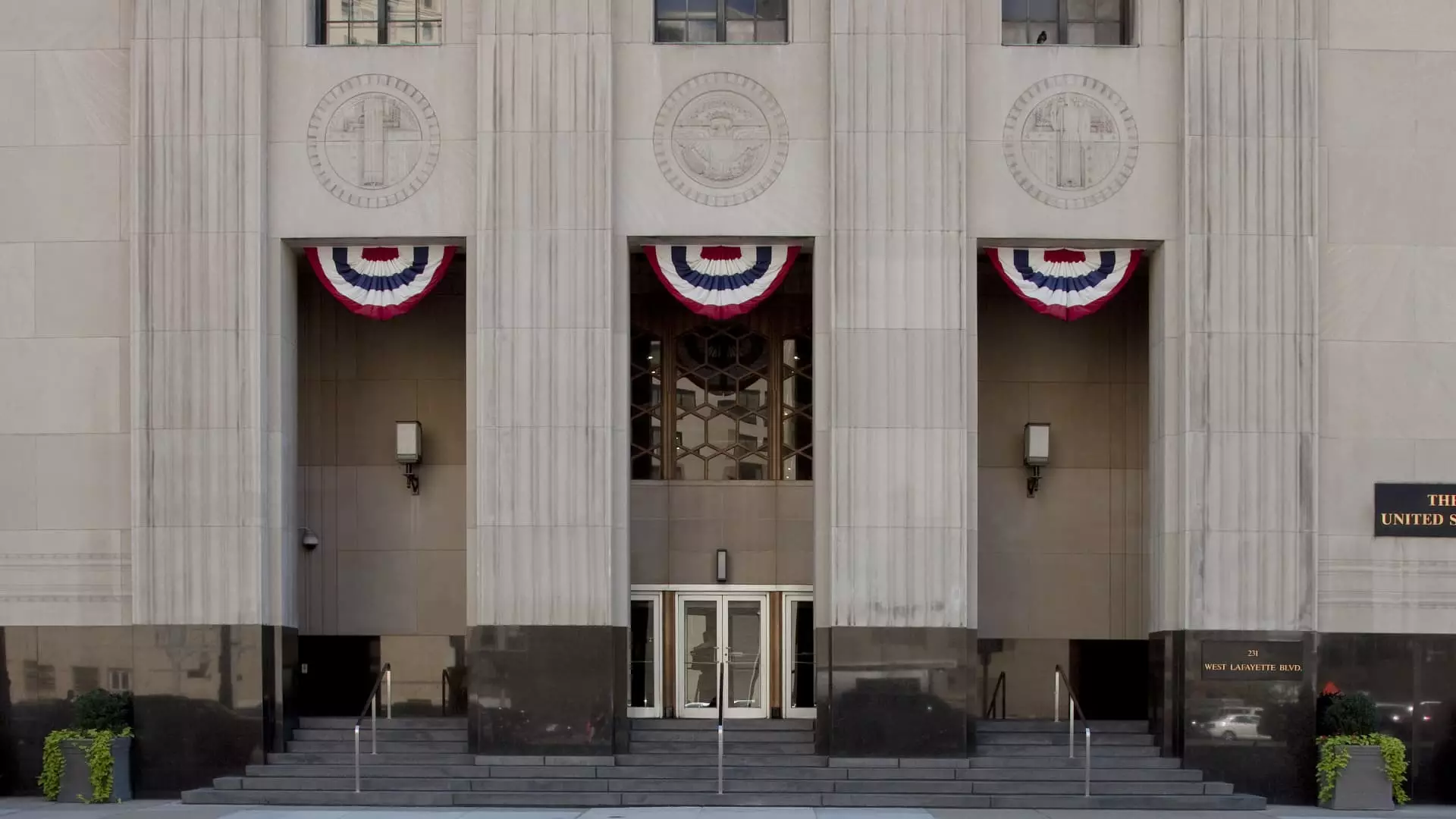The recent case involving a Chinese researcher, Yunqing Jian, and her boyfriend, Zunyong Liu, has sent shockwaves through the academic community and raised critical questions about national security, integrity in research, and the ethical responsibilities of scientists. Their arrest for allegedly smuggling a dangerous biological pathogen known to devastate crops—Fusarium graminearum—into the United States highlights not only a serious breach of trust but also a concerning trend among some individuals who think they can prioritize personal ambition over public safety.
In a world where scientific breakthroughs are highly valued, Jian’s actions, alongside Liu’s dubious decisions, stand out as alarmingly reckless. As a postdoctoral fellow at the prestigious University of Michigan’s Molecular Plant-Microbe Interaction Laboratory, Jian was in a unique position to contribute positively to her field. Yet, the couple’s alleged conspiracy to smuggle this plant pathogen underscores a troubling willingness to engage in unethical behavior for the sake of advancing their research ambitions.
The Perils of Ambition Gone Astray
Liu’s initial denials to customs officials paint a picture of a frantic individual caught in a web of his own making. The subsequent revelation that he purposely hid the pathogen in his backpack, intending to bypass customs regulations, reveals not just a desire to continue research but a blatant disregard for the consequences of such actions. The materials they sought to smuggle can cause significant harm—not just to crops but also to livestock and humans, with potential health ramifications including vomiting and liver damage. This stark reality raises a fundamental question: how can we trust researchers who show such blatant irresponsibility?
The fact that this couple allegedly discussed plans to smuggle seeds into the U.S. enhances the narrative of a troubling design, showcasing a calculated plan rather than a mere thoughtless act. By discussing smuggling methods through innocuous-sounding comments, they exemplify the intersection of ambition and moral decay. They assumed they could outsmart both the U.S. customs authorities and the ethical expectations associated with scientific inquiry. This seemingly cavalier mentality towards legalities and ethics must prompt urgent conversations about accountability in academia.
The University’s Stance and Broader Implications
The University of Michigan’s swift condemnation of the actions of Jian and Liu serves as a necessary reminder of the responsibilities inherent in academic research. By publicly distancing itself from the actions of these individuals, the university makes a clear statement on the unacceptability of such ethical breaches, emphasizing that no institution can afford to become complacent in safeguarding its public mission against individual malfeasance.
Moreover, the university’s assertion that it never received funding from the Chinese government related to their research further chips away at the conspiracy narratives that often surface in discussions like these. Calls for transparency, integrity, and ethical practices are not only warranted; they are essential for maintaining the trust that the public places in research institutions. The incident reinforces the notion that thorough vetting and oversight are crucial and must be taken seriously to prevent such breaches of integrity in the future.
The Bigger Picture: Racism and Targeted Assumptions
While it is imperative to hold Jian and Liu accountable for their alleged actions, this incident also opens the door to uncomfortable conversations around racism and xenophobia. In the wake of their arrests, one cannot ignore the tendency to link the actions of individuals to larger narratives of distrust regarding specific nationalities or regions. Scientists of all backgrounds must not become scapegoats for broader geopolitical tensions or fears surrounding foreign influence in research.
By acknowledging the complexities of this situation, we can unearth layers of nuance that may otherwise remain overlooked. It is critical to balance the legitimate concern for national security with an understanding and appreciation for the diversity and potential of international researchers. Broad brush-strokes of blame can lead to chilling effects on collaboration and innovation—something the global scientific community can ill afford at this pivotal moment in humanity’s collective progress.
The actions of Jian and Liu serve as a cautionary tale blending ambition, ethical transgression, and the consequences of neglecting responsibility within scientific research. As we analyze this troubling scenario, it is clear that the stakes are high, not just for the individuals involved, but for the integrity of the research field as a whole.

